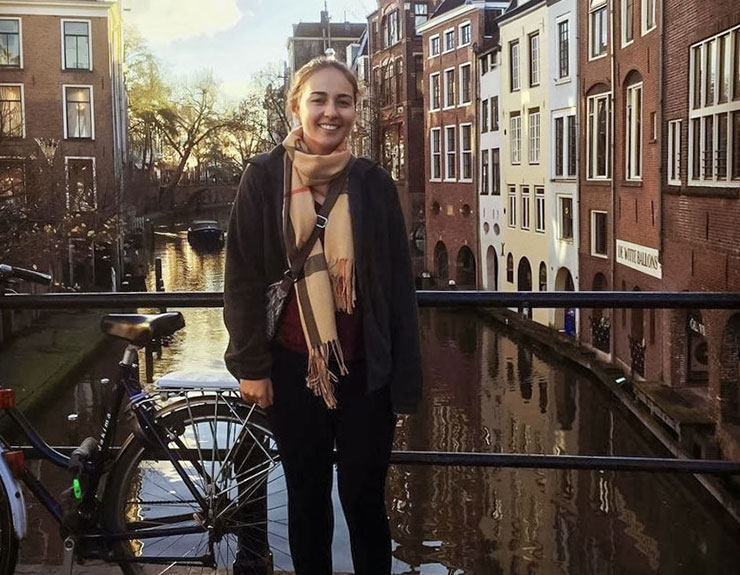Preparing to Study Abroad
Students who fully prepare to study abroad are the most successful on their programs, and that preparation begins the moment they start their application.
While they are applying
Encourage your student to disclose any accommodation needs, including academic, physical mobility, health or other, to UCEAP at the start. All disclosures are confidential, and there's a big benefit to disclosing as early as possible. Not all accommodations can be met at all locations, so these early discussions can help your student choose a program that meets their needs.
When they are accepted
Encourage your student to apply for UCEAP scholarships. With just one application, your student can access thousands of dollars to help pay for their needs abroad.
Bonus: See How to Get Study Abroad Scholarships.
During the health clearance process
Encourage your student to disclose any mental or physical health needs on their health clearance, a process completed before departure.
Read more about the UCEAP Health Clearance process.
Before they depart
Encourage your student to think about a personal safety plan and how you’ll stay in contact while they are abroad. They should be encouraged to sign up for the US Department of State’s STEP program to receive important and timely security messages about their location abroad.
In addition to helping your student prepare, consider getting a passport or making sure your passport is current. If you choose to visit your student abroad, you will need an up-to-date passport.
While they’re abroad
In addition to UCEAP academic specialists, your student has access to a range of support services, including onsite staff, medical assistance, and mental health support, while they are abroad. See the Support page for your student's preferred program for the specific support available by program.
FAQs
You may find past surveys of parents, guardians and support networks useful. UCEAP's Institutional Research conducts annual studies to understand the study abroad experience from your perspective.
Explore the UCEAP parent survey data to learn what past support networks have said about study abroad and the effect of study abroad on their students.
Give yourself time to get to know your student again when they return. For many students, the study abroad experience is very transformative, and they may have difficulty expressing how they've changed. You may also notice they approach their lifestyle, relationships with others, and academics in new and different ways.
Encourage your student to take UCEAP’s award-winning Navigating Reentry course, which can help them process their experience and translate it personally and professionally.
You probably know your student will experience culture shock while they are on study abroad. You may not be as familiar with reverse culture shock, which can be a surprise.
Bonus: Read UCEAP’s advice on managing reverse culture shock.


